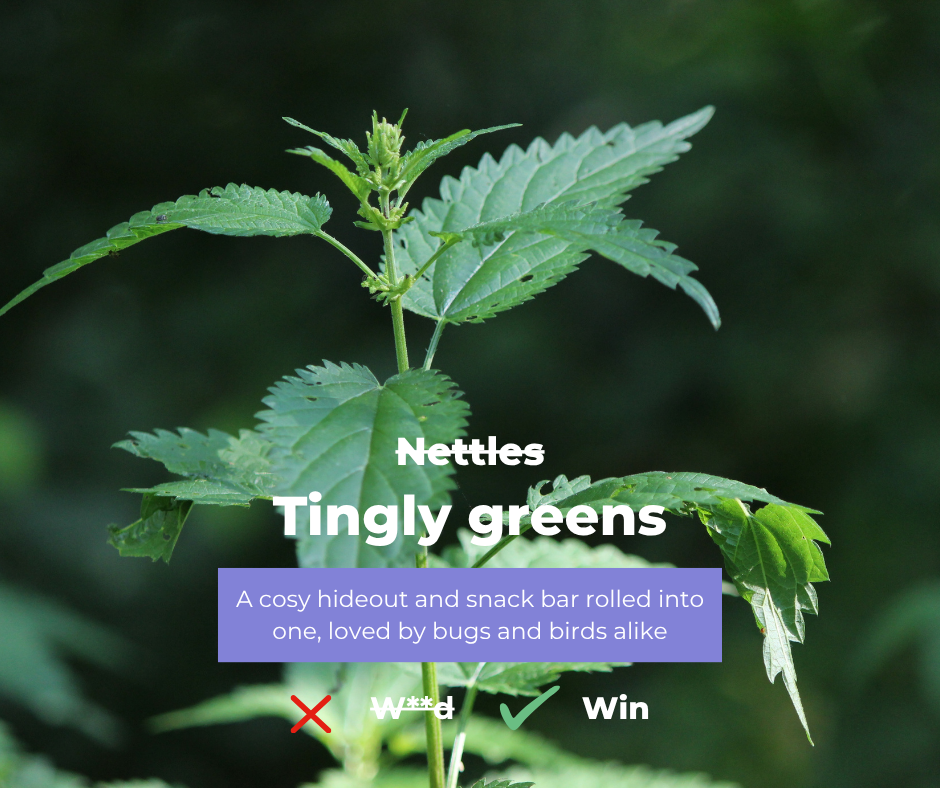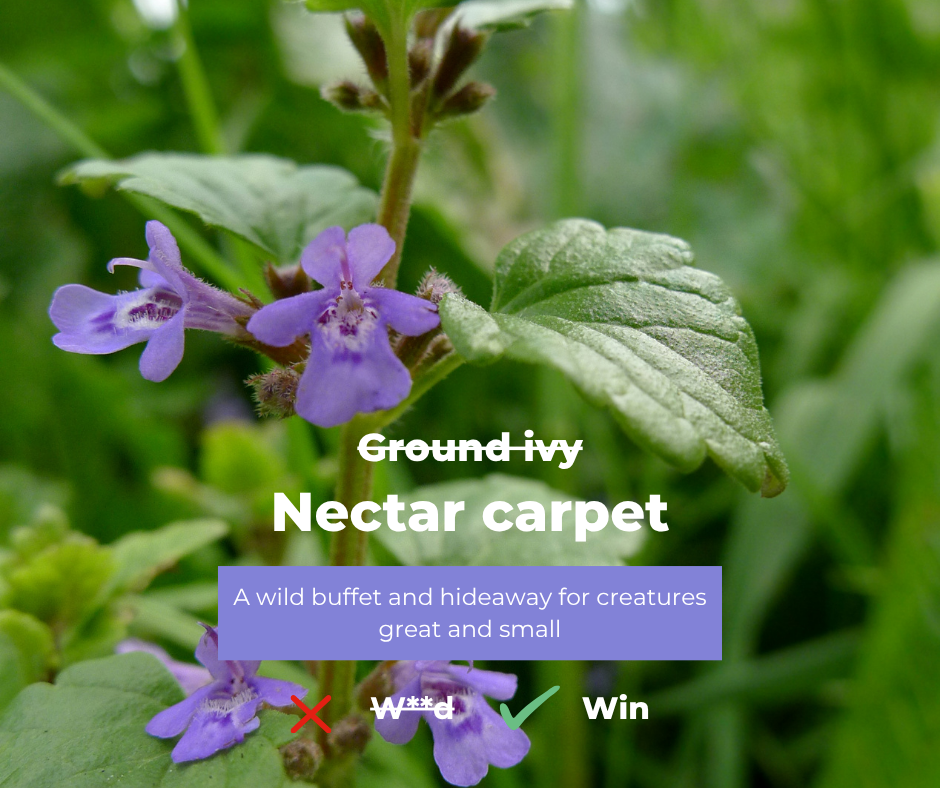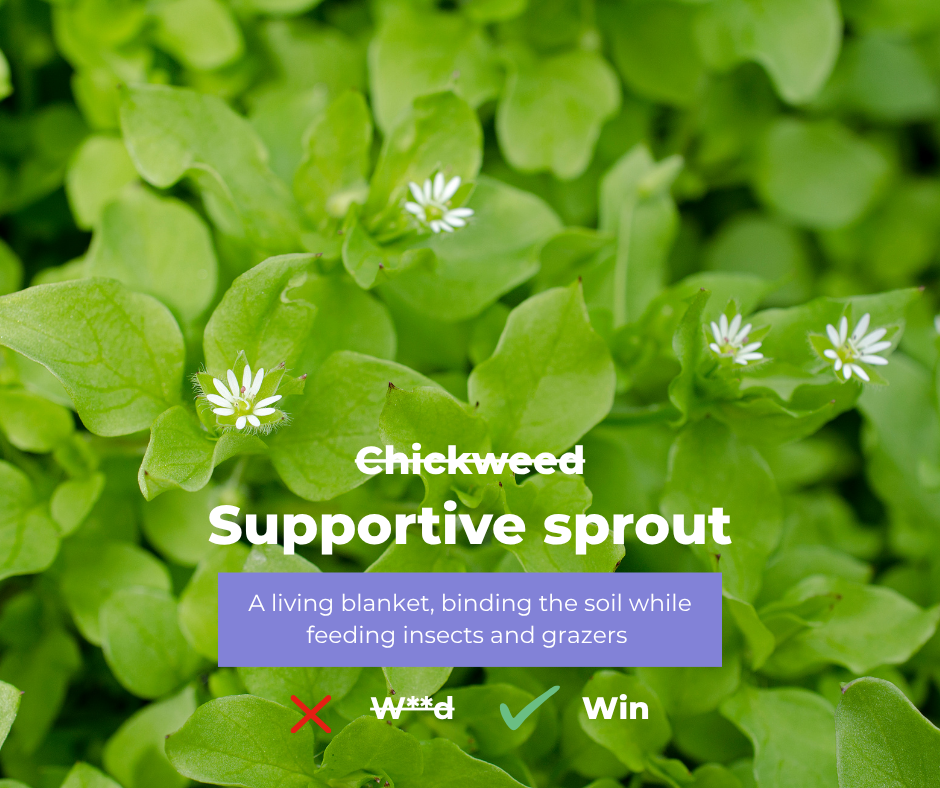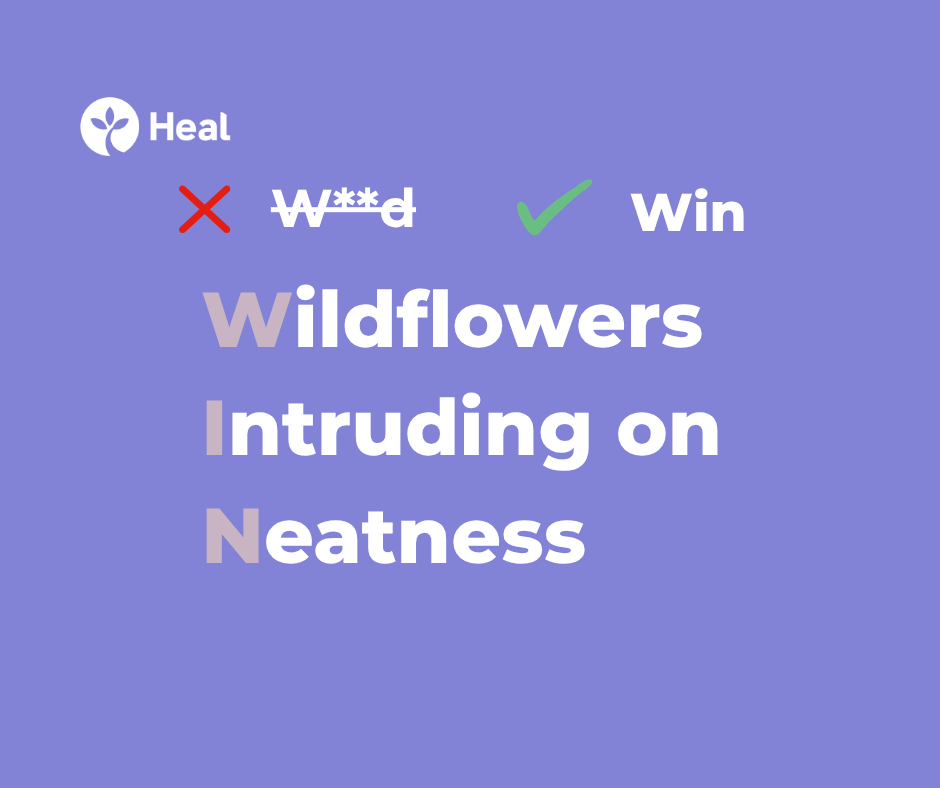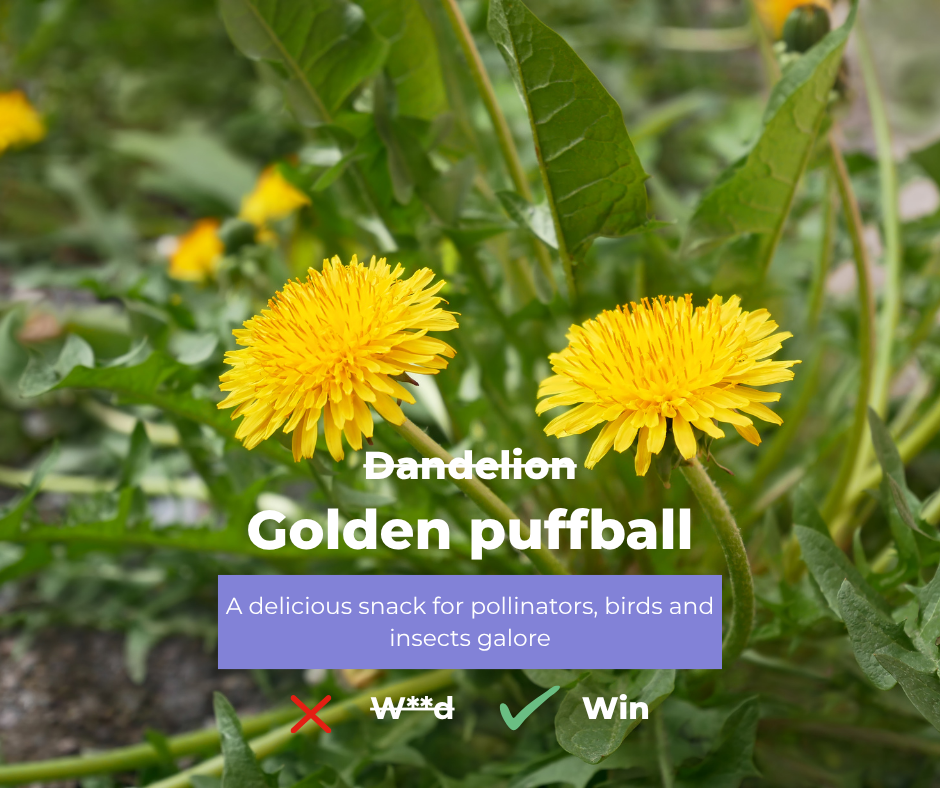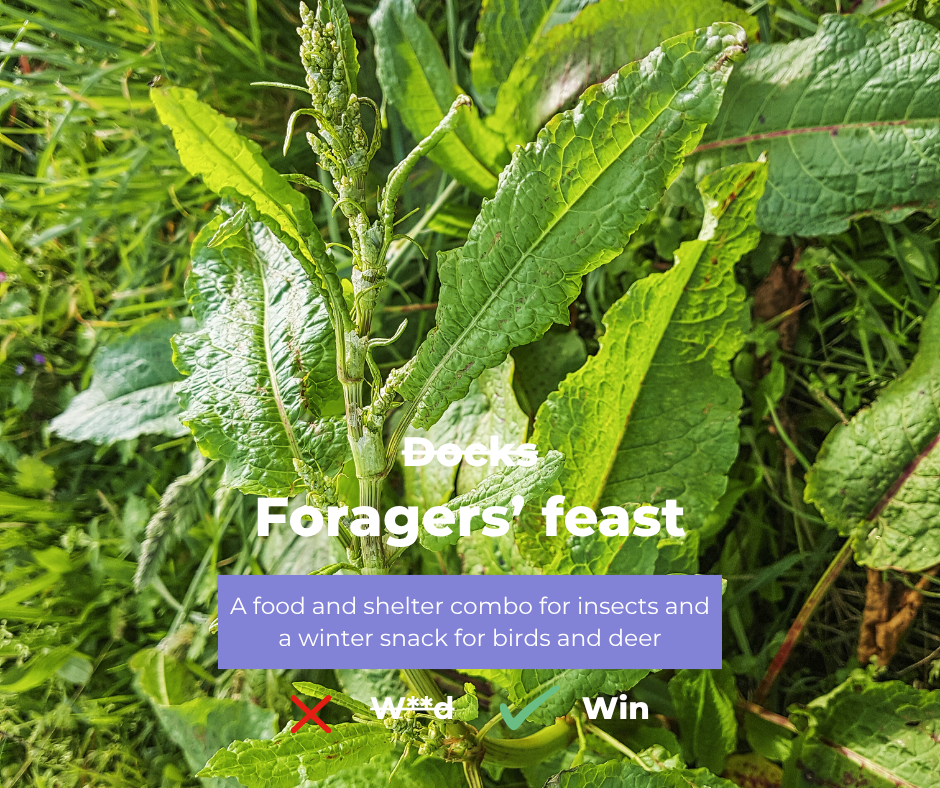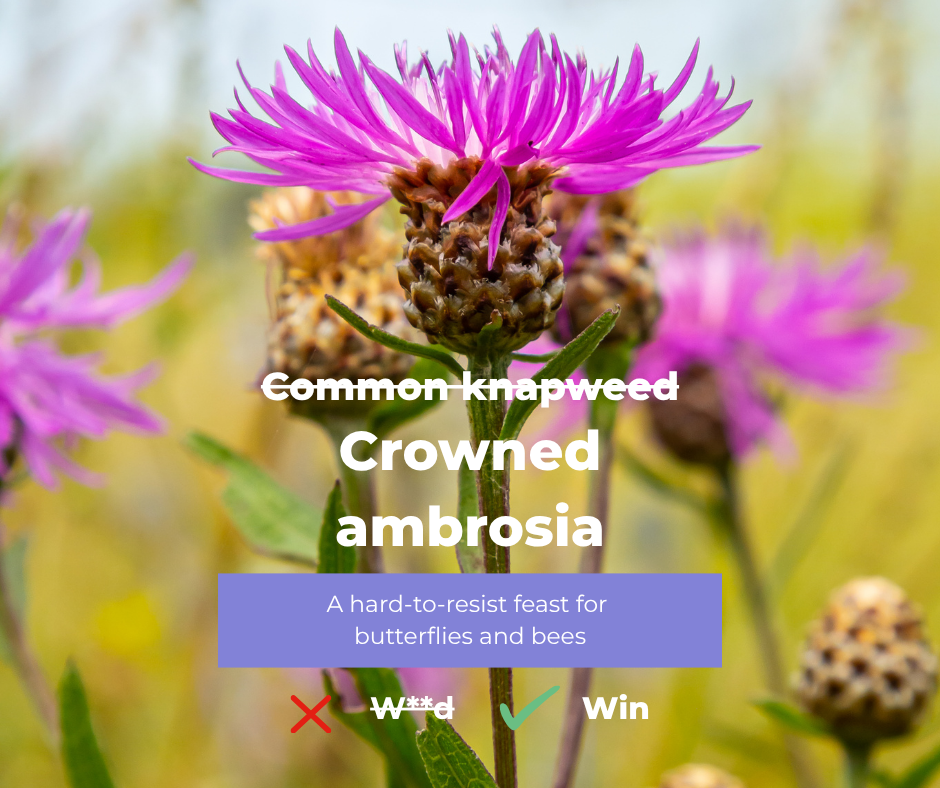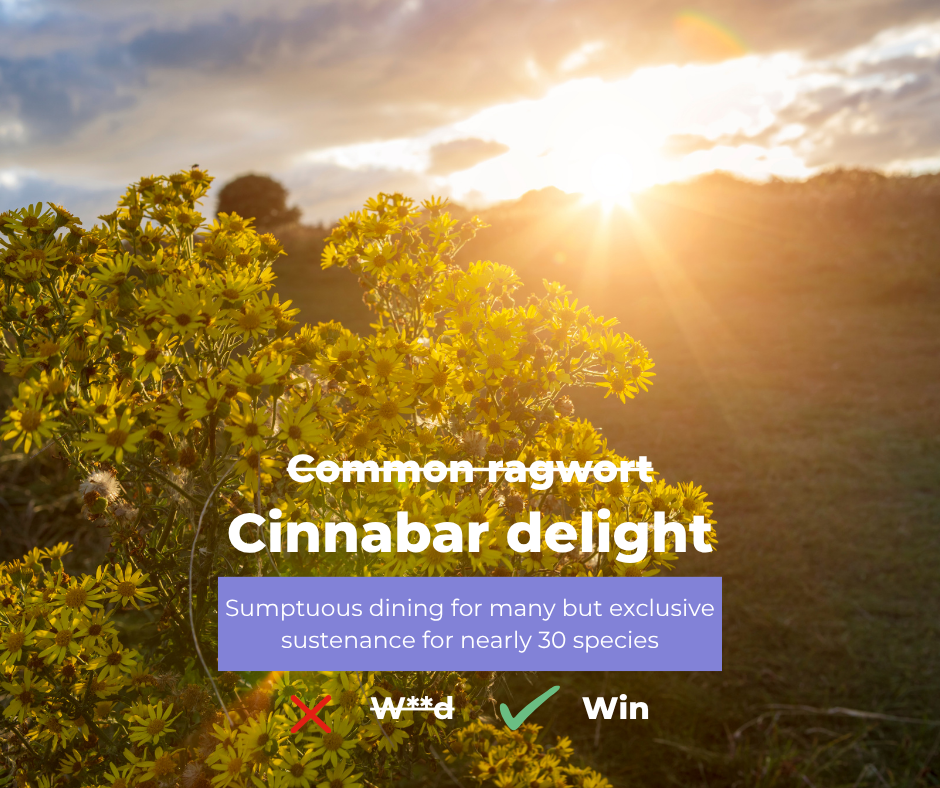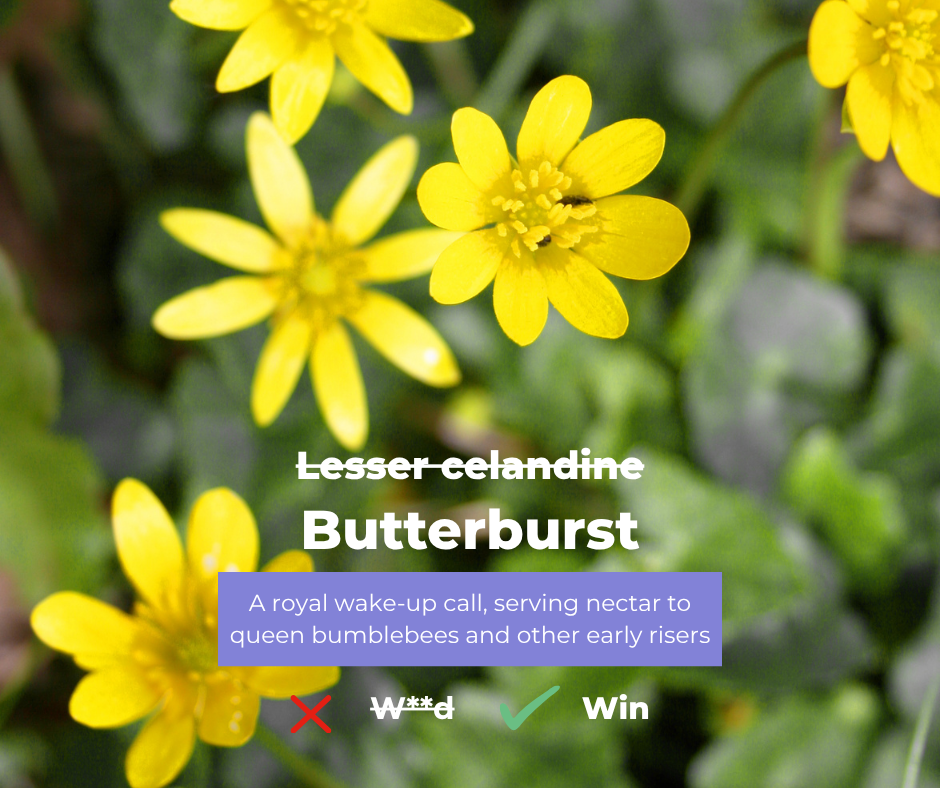Heal Rewilding calls for a rethink: ‘weeds’ are wildlife wins
Up to 720,000 tonnes of wildlife-friendly plants may be being removed annually from UK gardens
The nature charity Heal Rewilding is calling for weeds to be rebranded to help the public better understand how important wild plants ‘in the wrong place’ are to the nation’s struggling wildlife.
Heal suggests weeds are rebranded as ‘wins’ – Wildflowers Intruding on Neatness – to shake off the negativity that clings to the word ‘weed’. These resilient plants, dismissed as garden nuisances, are unsung biodiversity champions, feeding or sheltering bees, birds, butterflies, moths, spiders and a host of other wildlife.
While there is no precise data on the proportion of weeds removed from UK gardens, weeds potentially constitute 10-20 per cent of total garden waste. Using 2023 figures, this means that up to 720,000 tonnes of these plants may have been removed from domestic gardens, amounting to a significant loss of food and habitat for wildlife.
While gardeners may be quick to uproot weeds for appearing ‘in the wrong place’, Heal wants more of us with gardens to think about the vital nourishment and refuge that these plants provide for a wide variety of species, and to tolerate having a few more in their gardens for ecological reasons.
“Every so-called weed has a role to play in an ecosystem,” says Jan Stannard, CEO of Heal Rewilding. “Far from being villains in our gardens, they’re the unappreciated heroes helping combat wildlife declines.
“We’re not suggesting weeds are allowed to run rampant in gardens – imagine what Alan Titchmarsh would say – but for people to let more of them remain and to see them positively as ‘wins’ for wildlife.”
Wildlife wins in action:
- Nettles – instead, Heal suggests a new name, ‘tingly greens’
Their sting may be memorable, but nettles serve as a banquet for caterpillars, butterflies, moths and birds, while ladybirds are drawn to the aphids which find shelter beneath their leaves
- Common knapweed – what about ‘crowned ambrosia’?
A magnet for pollinators thanks to its excellent source of nectar, this wildflower supports a range of insects including butterflies, bees, moths, beetles and hoverflies
- Ragwort – how about ‘cinnabar delight’?
While toxic to livestock in hay, ragwort sustains over 200 invertebrate species, including 30 that depend on it exclusively
By championing ‘wins’, Heal hopes to inspire a cultural shift in how we manage our gardens, verges and wild spaces, helping pollinators and other wildlife thrive.
Ends
About Heal Rewilding
Heal Rewilding is a registered charity working to raise money, buy land in England and rewild it, to help nature recovery, climate action and wellbeing. Through the rebuilding of wildlife populations, community involvement and storytelling, Heal aims to tackle the climate and ecological crises and help reconnect people with nature. It bought its first rewilding site, Heal Somerset, in December 2022, which is open for free access to the public 50 weeks a year.
For further information: Jan Stannard, jan@healrewilding.org.uk, 07710 171704.
Press release distributed by Pressat on behalf of Heal Rewilding, on Tuesday 12 August, 2025. For more information subscribe and follow https://pressat.co.uk/
Wildlife Nature Biodiversity Butterflies Birds Bees Plants Gardening Environment & Nature Leisure & Hobbies
Published By

01749 684757
comms@healrewilding.org.uk
https://www.healrewilding.org.uk/
jan@healrewilding.org.uk
katie.stearn-mills@healrewilding.org.uk
Visit Newsroom
You just read:
Heal Rewilding calls for a rethink: ‘weeds’ are wildlife wins
News from this source:


